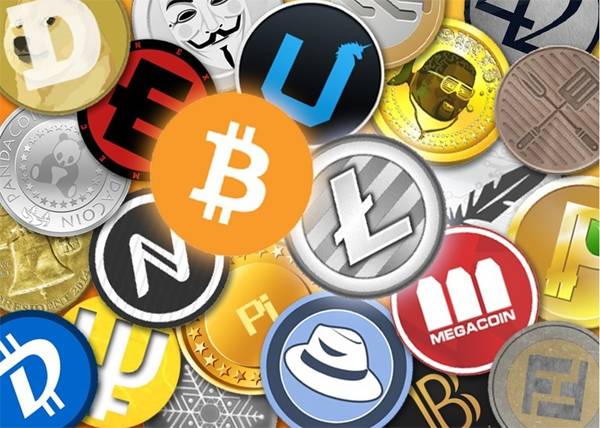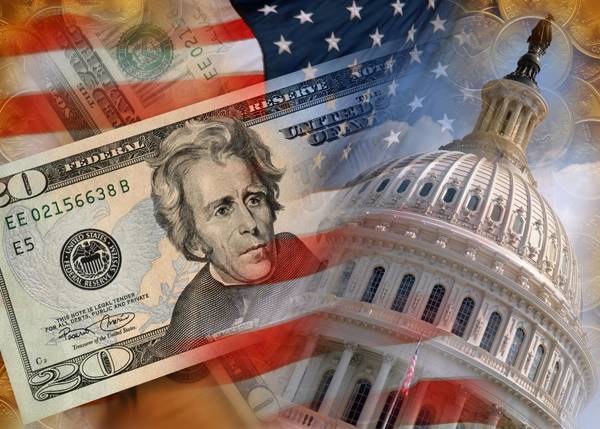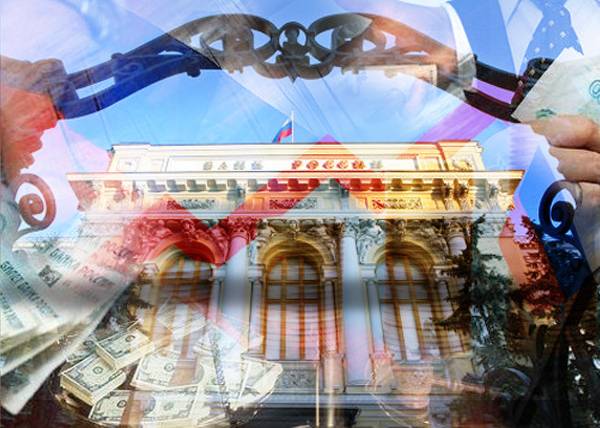Why did the “offensive” of cryptocurrencies begin and what does it promise
Question: The most popular cryptocurrency is now Bitcoin, but there are others - how many are there? And in general, what are they for?
Valentin Katasonov: Yes, Bitcoin, Ethereum, and only about two thousand names of different cryptocurrencies. True, some of them are like one-day butterflies, so to say how many there are at the moment, no one is taken. Experts monitor about 100 leading types of cryptocurrency. As for the name itself - “cryptocurrency” - we live in the era of the world of neuro-linguistic programming, and sometimes we are given some new notions so that we finally stop understanding something. The word "cryptocurrency" consists of two simple words: "crypto" means secret, encrypted, secret; and "currency" - that is, something like money. But in fact, we can say that there is no secrecy. They prove to us that this is a kind of electronic money that ensures the anonymity of participants in transactions. This is all sorts of professional terms: "blockchain", "peering", "big data". The man in the street begins to walk in a circle, and he begins to really believe that there is one hundred percent protection there. Of course, there is no absolute protection, and any serious expert in the field of computer technology and the Internet will say that there are ways to identify a participant in transactions.
Question: Even with encryption?
Valentin Katasonov: If we consider the world of cryptocurrencies as a kind of closed world, then for those who created these cryptocurrencies, this is complete nonsense. Roughly speaking, there is a kind of gambling between the participants, and it ends with someone recording their loss with many zeros, and someone recording their winning. But the winnings must still be converted into something more understandable, more real. Therefore, between the "world of cryptocurrency" and our world there are certain "corridors" through which real goods and real money circulate back and forth. When some assets pass through these “corridors,” at this point participants can be decrypted.
Theoretically, a person can remain anonymous, but there are many known cases when decryption occurred. Even the most careful participant in the game of cryptocurrency still makes mistakes. Here you can catch him with these mistakes. And the cases of how anonymously protected by various crypto-ciphers people were calculated and caught are more than enough.
That is, of course, this is not “crypto” - everything can be deciphered. More importantly, it is still not a currency.
Question: Why is it not a currency, not money?
Valentin Katasonov: The difference is that when we talk about national money, we simply say “money”, when we talk about money from other countries - we say that it is foreign money, it is currency. The most important feature of money is that they are equivalent, in other words, they must have a stable purchasing power. And we see what is happening in the cryptocurrency market. There are constantly fluctuations, in professional terms, there is high volatility. Recall history Bitcoin - it appeared in the 2009 year, then the bitcoin coin was exchanged in the 1 ratio for a tenth or a hundredth of even a dollar, and a cent. Today, its rate rises to $ 3,5 thousand and above. They say that the time is not far off when it will cost $ 500 thousand for one coin, someone is talking about 1 million.
It is a tool of speculation, not money, because money must have a steady purchasing power. And if they do not possess such an ability, then this is not money.

Question: How does the process of sale and purchase?
Valentin Katasonov: Participants in this world of Bitcoin and cryptocurrency are like two categories of people. Some are those who make this money, one might say, out of thin air. These are the so-called miners. Mining - from the word "mining", they are "miners". The second category is those who buy these coins. These may be people who do not even have minimal computer literacy. Miners, of course, need to have computer literacy, and today also have computer power.
Question: And why do you need to identify players? Cryptocurrencies can be dangerous?
Valentin Katasonov: Because cryptocurrencies are used not only for gambling, but also, for example, for financing terrorism, for drug trafficking, for paying for gangster services. We live with you, sort of like, in the visible part of the electronic world, which is called the Internet, and there is still the “black Internet”. It is in this "underworld" that all these transactions are carried out. There you can order and kill someone using the same cryptocurrency.
Question: In this case, why is there so much noise around bitcoins? They overcome the line of $ 4 thousand or are divided into two cryptocurrencies - each time this is “high-profile” news ...
Valentin Katasonov: Do you understand where the wind blows? Let's see the global trend. The owners of money want to become masters of the world. Naturally, cryptocurrency is one of the tools with which they want to accelerate the onset of this happy moment for them. There are several versions of why cryptocurrency is needed. Of course, we can skip the optimistic version, they say, the cryptocurrency is an exemption from oppression from banks, that now we do not need banks, now we can directly enter into horizontal economic relations with you, and no one can cheat anyone. This is a fairy tale. But they are believed and supported by the cryptocurrency projection not only the “frostbitten” speculators who really need to win and make a profit in 1000% begin, but even those who simply dream of a certain bright future. In this sense, the devil is cunning and creative.

Question: Why then cryptocurrencies are needed?
Valentin Katasonov: There are several versions. When I studied at the institute - at the end of 60, at the beginning of 70, the world experienced a transition from the Bretton Woods financial system to the Jamaican one. Then about many things that are familiar today, no one heard. Then they said that there are such derivatives - financial derivatives, that this is a very rare tool that is used exclusively for hedging, that is, for reducing or eliminating some risks of commercial operations.
And look today - the markets for financial derivatives are in the hundreds and thousands of trillions of dollars. Only a few decades have passed, and a giant elephant has turned out from this “bacterium”. One of the versions that cryptocurrency today is really a “microbe” against the background of these scale operations that are carried out in financial markets. But tomorrow it can turn into an elephant or a dinosaur.
The total capitalization of the leading cryptocurrency is somewhere at $ 200 billion - the capitalization of one large company on the US Nasdaq Stock Exchange, such as Facebook or Apple. Here are the scales. And the information hype just rolls over. Everything is very simple - because the media is in the hands of the owners of money, and they begin to inflate another bubble with the help of the media.
I would not be surprised if tomorrow the capitalization of these cryptocurrencies will be measured not by billions but by trillions of dollars, but the day after tomorrow by tens of trillions of dollars. And what is it for? Again we return to the times of the transition to the Jamaican system. What happened then? Then the gold exchange standard was eliminated - the “golden brake” was removed from the printing press.
In fact, a situation arose when the owners of money could print an unlimited amount of "green paper", figuratively speaking. There was only one "but" - it was necessary that there was a constant demand for "green paper". Even the Jamaican conference failed, it was in January 1976, and in the fall of 1973, the energy crisis had already erupted. For several months, the price of "black gold" jumped four times. This is the first sign that a new system is being created, which involves the removal of all control over prices in commodity markets. The price of "black gold" jumped four times - and that at the time was equivalent to tens of billions of dollars. At the same time, the dollar began to turn into "petrodollar". This is such a subtle, thoughtful operation. By the way, Henry Kissinger was actively involved in the implementation of this operation, who was then winding around the countries of the Middle East and negotiating with all countries producing and exporting oil that they would buy "black gold" only for dollars.
And then - more. Some financial instruments began to appear, bubbles began to grow in the financial markets, and they began to absorb billions, trillions of these “printing press” products. Today, these possibilities are already exhausted. And here is one of the versions that cryptocurrency is another bubble that will continue to create demand for "green paper" and prolong the existence of this "printing press" of the Federal Reserve System.

Question: There is a version that cryptocurrencies were initially created in order to later bring down the monetary systems of different countries.
Valentin Katasonov: Indeed, we are seeing strange things around the world. During 100 for years, central banks - I carefully studied and tracked it - were very jealous of the emergence of some kind of alternative money. It could be corporate money, local money, local money, municipal money - an infinite number of precedents. Central banks have always in the bud destroyed the possibility of the emergence of such alternative money. And, of course, they spit their monopoly on emissions.
And here we see strange processes. As an example, we can take Russia - for example, four or five years ago, the Central Bank and the Ministry of Finance firmly stated that we do not recognize any cryptocurrencies. It was a normal and mature response to the emergence of some alternative currencies. And today, the monetary authorities are beginning to speak in a different way, they say, we still cannot prohibit cryptocurrency, so let us legalize them, let us regulate them. The parallels suggest something like the story of drugs in Europe - suddenly they began to say in Europe that they are not able to fight drug mafia, therefore, they say, let's legalize the drug trade and we will control this legal trade.
In fact, the state is moving away from the solution of this task, and there are such evil, dangerous to human alternatives. It has to be said that even in the United States, officially, they are still tougher than cryptocurrency than in Europe or Russia. From my point of view, the owners of the “printing press” of the Fed simply do not want the cryptocurrency to be somewhere close to this “printing press”.
Question: Is this a trend imposed by global corporations, and soon we will give up cash, live in the digital economy and pay with electronic money?
Valentin Katasonov: Yes, in general, the trend is such that money becomes non-cash. Of course, we have some paper banknotes in our wallet, which are called Central Bank notes, but all over the world there is a crowding out of the paper component, and it is not a secret to anyone that trust in banks has dropped to the level of the plinth. In Russia, it suffices to recall the example of the bank "Ugra". And in the West, besides this factor, the threat of bank bankruptcy, there is also another threat - and this is not even a threat, it is a fait accompli. These are negative interest rates on deposits of commercial banks. In a number of Western countries, commercial banks leave a zero interest rate, or even a negative one. Of course, in these conditions, people understand that it is better to keep money in cash. This strains banks, so they strongly lobby for the adoption of laws that prohibit the use of cash. This actually means building a giant "bank concentration camp." And Russia is in the same trend, it can be seen with the naked eye, although there is no direct connection with cryptocurrency.
Question: What influences the rate of cryptocurrency? Racing can be in both $ 100 and $ 200 - is this possibly related to the global economic situation?
Valentin Katasonov: This can be determined by informational factors - some kind of publication about the good prospects for Bitcoin or the same ethereum. With external factors, objective circumstances, the relationship is very weak.

Question: The Central Bank of the Russian Federation, as you noted, began to look closely at cryptocurrencies, but went further - said that work was already under way to create a national cryptocurrency. How can this be interpreted?
Valentin Katasonov: Statements about the fact that some country will try to create its own national cryptocurrency, for me in general is some kind of nonsense. This was previously announced by England, this was stated by China. In China, there is the official currency of the yuan, which is issued by the National Bank of China. England has a pound sterling, which is issued by the Bank of England. What does national cryptocurrency mean? Not very clear.
If we mean that in parallel with the pound sterling or the yuan some other currencies will go around, this is, as world experience shows, the most unpleasant situation.
For example, take the history of the Russian Empire. In the Russian Empire there were parallel currencies - the credit ruble and the silver ruble. The proportions of exchange between them are constantly changing, and this is a very unpleasant situation. This is actually a monetary system built on parallel money.
Question: And is there already any foreign experience of cryptocurrency legalization?
Valentin Katasonov: For example, in Japan they said that they legalized cryptocurrencies from 1 in April of 2017. Please note that they are still trying to use the word not “currency”, but they say that it is an “asset” or a “financial instrument” or something else, but still no one has said that it is money.
In addition to Japan, you can also call Germany, some other countries. But I repeat, they formally say that this is not money, it is just some kind of asset that can be used, which can be used. The same China - after all, until recently China had the first place in the world in terms of the number of crypto-bills, that is, the most gambling game was played there.
But all this leads to a loosening of the national monetary system. It will all end very badly. So there is a multiple-step process: first they prohibit, then they say, they say there is something in it, we cannot prohibit it, so let's control it, but it will not be money, it will be some tools and some assets that cannot be used for paying taxes or some other operations. And then at some point they will say - you know, cryptocurrency is better than the yuan or the pound sterling. And this is necessary for the owners of money. There is a sweep of world monetary space from traditional currencies.
Question: If all the same cryptocurrencies start an offensive, and with us - is our economy ready for this at all?
Valentin Katasonov: So that we are ready for this, we need to prepare people. And the preparation of people is very active - a reboot of consciousness is being conducted. As I teach in high school, I see, I read textbooks, I hear what professors say, I hear the answers of students in the classroom - all this is perceived with a bang, they say, this is all great. But I already said that the current higher education in general and economic education in particular is, unfortunately, a conveyor for the production of fools. But the current system needs fools to support the demand for cryptocurrencies, to support the inflation of these bubbles. If people are ready to agree that cryptocurrency is great, if they agree that non-cash money is great and cash is an anachronism, then we are driving into this "electronic-banking concentration camp" at full speed. But I think that we should discourage this in every way.

Information